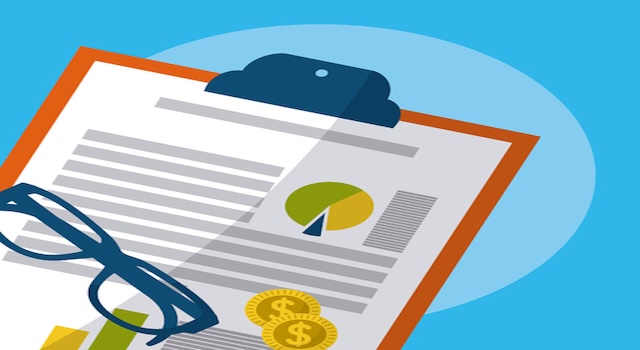Compliance (CaaS)
Nonprofit Management
Financial & Grant Compliance in Nonprofit Software: Automating Audits, Internal Controls & Reporting

Financial transparency is the cornerstone of trust in the nonprofit sector. Donors, auditors, and regulators all expect clear, verifiable records that demonstrate responsible stewardship of funds. As grant requirements and financial regulations grow more complex, many organizations turn to nonprofit software to simplify compliance, automate reporting, and ensure every dollar is properly tracked.
The Challenge of Financial and Grant Compliance
Nonprofits must juggle multiple compliance frameworks — from grantor requirements and GAAP standards to the IRS’s Form 990 and FASB regulations. Manual tracking through spreadsheets or disconnected systems can lead to costly errors, incomplete records, and audit delays.
Common compliance challenges include:
- Tracking restricted and unrestricted funds correctly
- Meeting multiple reporting deadlines across different funders
- Maintaining audit trails for every financial transaction
- Ensuring segregation of duties and approval workflows
- Reconciling grant expenditures with program outcomes
How Software Automates Compliance
Modern nonprofit financial systems offer built-in controls and automation that simplify compliance from the inside out. By using fund accounting, automated workflows, and integrated reporting, nonprofits can focus on mission impact rather than paperwork.
- Fund Accounting: Track restricted, temporarily restricted, and unrestricted funds separately to maintain compliance with grantor conditions.
- Automated Audit Trails: Every financial action is logged, timestamped, and tied to a user for full transparency.
- Approval Workflows: Enforce multi-level approvals to prevent unauthorized spending and maintain segregation of duties.
- Compliance Reporting: Generate donor- or grant-specific reports automatically, customized by fund requirements.
- Budget-to-Actual Tracking: Compare grant budgets against real-time expenditures to identify variances early.
Top Software Tools for Nonprofit Compliance
1. Sage Intacct for Nonprofits
Sage Intacct offers advanced fund accounting, audit-ready reports, and internal control automation. It’s one of the few platforms with built-in compliance templates for grants, GAAP, and FASB standards.
- Best for: Mid-to-large nonprofits with complex financial structures
- Standout feature: Automated grant-to-expense tracking and audit-ready dashboards
2. Blackbaud Financial Edge NXT
Blackbaud Financial Edge NXT helps nonprofits manage grant compliance, track funding restrictions, and maintain audit trails. Its built-in controls reduce the risk of human error during reconciliation and reporting.
- Best for: Nonprofits that need integrated grant and accounting systems
- Standout feature: Real-time variance tracking across restricted funds
3. QuickBooks Online Advanced for Nonprofits
QuickBooks Online Advanced provides affordable compliance support for smaller organizations. With fund tracking, approval automation, and integration with donor CRMs, it makes compliance manageable at scale.
- Best for: Small to mid-sized nonprofits
- Standout feature: Custom reporting and restricted fund tagging
4. Aplos
Aplos combines accounting, grant management, and donor tracking for simplified compliance. Its intuitive dashboards and audit reports make it accessible to organizations without full-time accountants.
- Best for: Faith-based organizations and community nonprofits
- Standout feature: Automated Form 990 and fund reporting
Internal Controls Every Nonprofit Should Enforce
Internal controls are the foundation of financial integrity. The right software can help enforce these controls automatically, ensuring consistent oversight and reducing the risk of fraud.
- Segregation of Duties: No single person should control all stages of a financial transaction.
- Approval Workflows: Require review and sign-off for invoices, grants, and expenses above certain thresholds.
- Access Controls: Limit financial data access to authorized personnel only.
- Regular Reconciliations: Match transactions to bank statements and grant budgets automatically.
- Document Retention: Store audit trails, receipts, and reports securely for regulatory compliance.
Grant Compliance Made Easy with Automation
Grant compliance extends beyond accounting — it’s about aligning program spending with donor intent. Software with integrated grant management modules allows nonprofits to track milestones, deliverables, and financials in one system.
- Pre-Award Setup: Define spending categories and conditions before funds are received.
- Grant Budget Controls: Automatically flag expenses outside approved parameters.
- Post-Award Reporting: Generate financial and narrative reports that meet grantor templates and deadlines.
Benefits of Automated Compliance Systems
- Reduced Administrative Work: Eliminate manual data entry and repetitive report generation.
- Improved Accuracy: Real-time data validation ensures reports are correct and audit-ready.
- Stronger Accountability: Detailed audit trails track every financial movement.
- Faster Audits: Auditors can access organized, time-stamped records instantly.
- Enhanced Donor Confidence: Transparent reporting builds long-term donor trust.
Preparing for an Audit Using Nonprofit Software
Audit season doesn’t have to be stressful. By leveraging automation, your organization can stay ready year-round.
- Use audit logs to verify every transaction and approval.
- Automate report generation for grantors and board members.
- Regularly reconcile accounts and document all adjustments.
- Export financial data in standardized formats (e.g., CSV, GAAP-compliant PDFs).
Integrating Compliance Tools with Your Tech Stack
Compliance works best when your accounting, CRM, and grant management systems are integrated. Data synchronization reduces manual effort and ensures consistency across reporting platforms.
- CRM Integration: Align donor and grant data with financial reports.
- Grant Management Systems: Sync awards, deliverables, and payments automatically.
- Bank Feeds: Enable real-time reconciliation with secure, encrypted connections.
Emerging Trends in Nonprofit Compliance
- AI-Powered Auditing: Machine learning tools will soon detect anomalies and flag potential compliance risks automatically.
- Blockchain Verification: Immutable ledgers could provide transparent, tamper-proof audit records.
- Cloud-Based Collaboration: Auditors and finance teams can review data in real time from secure cloud systems.
- Continuous Monitoring: Compliance tools now track transactions year-round instead of relying solely on annual audits.
Final Thoughts
Financial and grant compliance doesn’t have to overwhelm your organization. With nonprofit compliance software, you can automate audits, enforce internal controls, and maintain transparency at every stage of your financial operations. By embracing automation, nonprofits can ensure accountability — and spend more time focusing on their mission instead of manual reporting.

